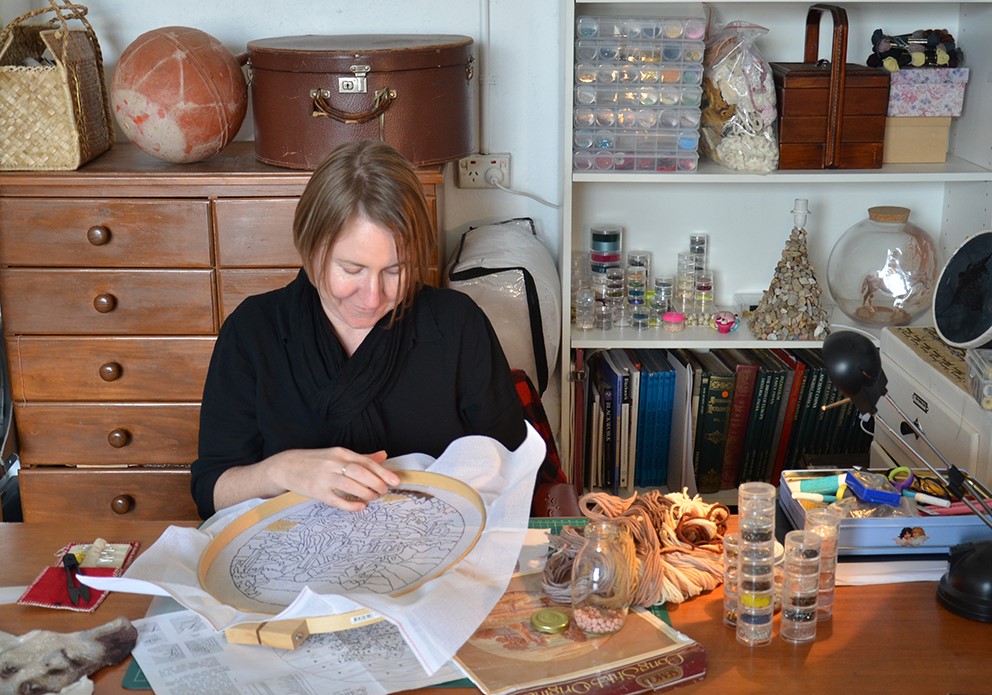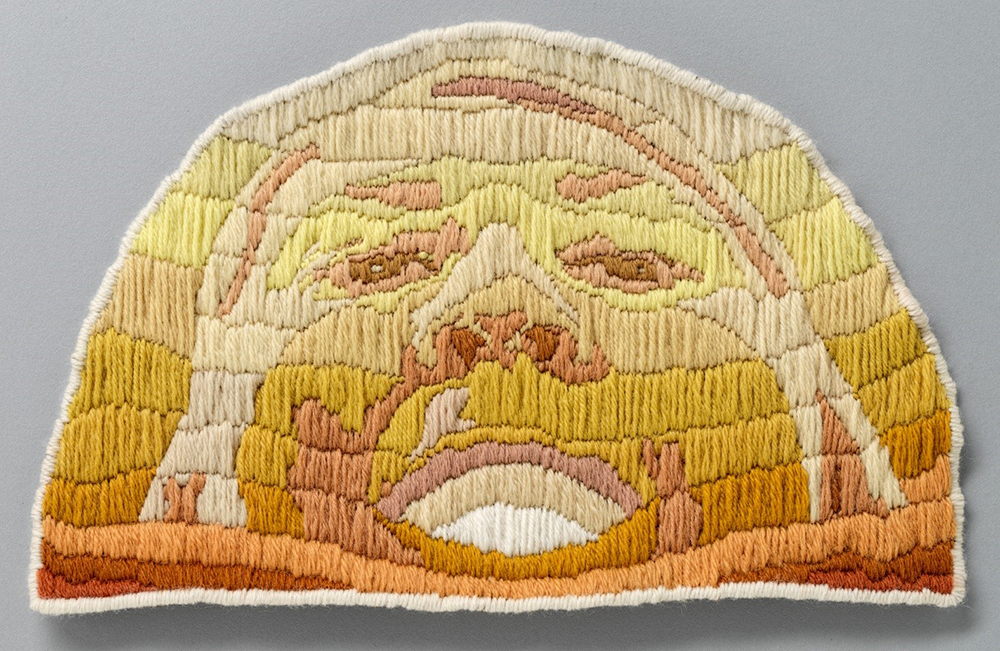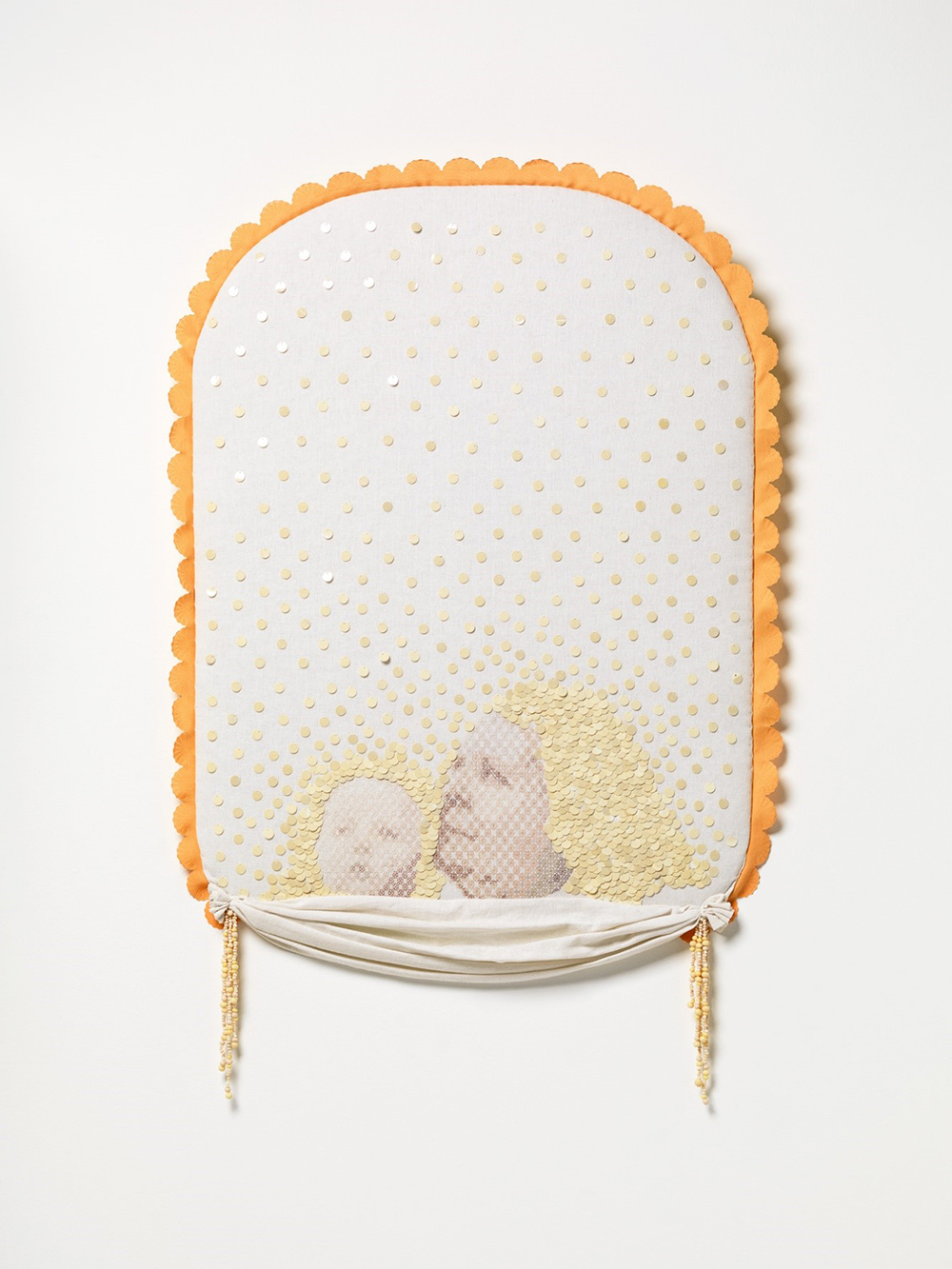01 July 2020

Dr Sera Waters
Visual Artist
Bachelor of Visual Arts (Honours)
Doctorate by Research, Visual Arts
Dr Sera Waters is fascinated by the stories that domestic and textile arts have to tell. Traditional skills and techniques like sewing, weaving and knitting have historically been passed over as, for some, a kitsch revival of semi-obsolete crafts, and for others, a derogatory notion of ‘women’s work’ – but Dr Waters’ research has centred around understanding the knowledges and histories embedded in these centuries old practices.
Dr Waters received her PhD in Visual Arts from the South Australian School of Art at UniSA in 2018. She also holds a Bachelor of Visual Arts (Honours) and a Masters in Art History. Over the course of her highly prolific career, she has contributed to a diverse range of exhibitions and publications, including participation in local and international shows. In 2019 she was shortlisted for the Art Gallery of South Australia’s Ramsay Art Prize for Falling: Line by Line, a seven-metre long-stitch piece that depicts a fallen tree set against a sunset landscape.

Dr Waters describes her journey from undergraduate art student to research candidate as an odyssey that opened creative and conceptual doors for her.
“I was 17 when I started my undergraduate degree … the skills I learnt from my lecturers at the South Australian School of Art came at the right time in my life to ignite in me a love of exploring big and complex ideas,” she says.
“It was an important realisation for me that visual arts research is interdisciplinary and I embrace the creativity in colliding research from across many fields.”
Her doctoral research explored ‘genealogical ghostscapes,’ a term Dr Waters coined to evoke the haunting that lingers across Australia as a result of settler colonial homemaking practices and an ongoing history of denial surrounding the realities of invasion. She explored closely the role of domestic arts and craft practices to gain insight into how colonial behaviours and traditions are literally woven into the fabric of our home lives.
More recently, Dr Waters’ research has developed to address the aftermath of colonisation through a lens of climate change. She draws these themes together, categorising her own work as “underpinned by an ethics of care, a push for truth-telling, taking responsibility and listening.”

The past few months have seen a major disruption for artists, with the ramifications of a global pandemic causing shockwaves across the art world – galleries closed, exhibitions postponed, and for many, income streams worryingly and indefinitely dried up. Despite this unfriendly landscape, Dr Waters describes her most recent project as “intentionally hopeful.”
The Survivalist Sampler project began as a collaborative contribution to a planned exhibition that was delayed due to the coronavirus outbreak. In response, Dr Waters took to Instagram, inviting the creative community at large to participate in a mass stitching project aimed at recording what is occurring now, preserving important information about survival, and above all, preserving our sense of community and hope.
Of the project, Dr Waters notes that “samplers have long given voice to girls and women who have otherwise been lost to history … [and] as an artist, I have been grappling with a way to respond to the overwhelming plethora of information and feelings about our shared precarious future.”
Her decision to invite the community to join her personal journey to channel her anxieties into craft has garnered a strong response with many people from around Australia and beyond taking part.
“All humans are connected by traditions and ways of living that have passed along lines and between individuals, families and communities and have done for as far back as can be imagined,” says Dr Waters of the value of domestic arts and crafts in a contemporary world.

“To me the underestimation of domestic textiles, home-craft … equates to a failure to comprehend the important knowledge embedded in these practices. Such practices record information from their time and speak to the intricacies and particularities of local histories and places.”
Dr Waters emphasises the importance of both preserving the knowledge and understanding contained within these practices and interrogating the truths and untruths they present about our shared colonial pasts.
“Like all traditions which are reworked to suit different eras and needs, I too rework them and repurpose them to redress concerns of our time. At the same time, I, and many others, are continuing these valuable ways of making and preserving them for future generations.”
Dr Waters currently features in an online exhibition for Crafted Vancouver, Make the World Again - an exploration of the power of weaving to bind the world together in the face of international chaos. Later this year, her solo show Domestic Arts will tour to seven regional galleries across South Australia supported by Country Arts SA.
Dr Sera Waters is represented by Hugo Michell Gallery.
serawaters.com.au
@serawaters


